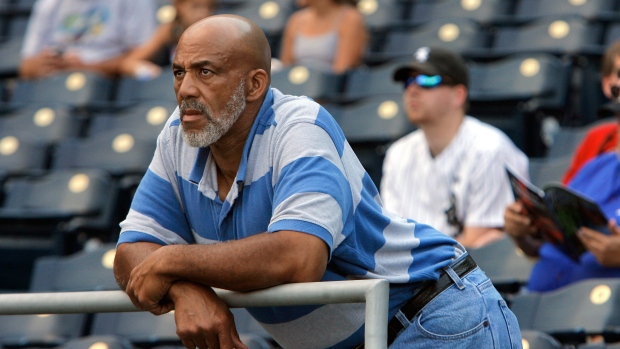Nov 9, 2016
Willie Aikens is living the miracle of recovery
Former Blue Jays GM Pat Gillick helped get Willie Aikens, whose career was derailed by addiction, back on his feet.

“The best thing that ever happened to me is that I went to prison.”
That is what former Major League Baseball player Willie Aikens said to me. I’m aware of how bizarre that must sound to some people.
I’ve had success and failures, both personally and professionally, that have taught me a lot and given me a perspective that I never would have believed was possible.
I’ve battled my own addiction issues and now live a life of recovery. I’ve been to the darkest places that a human can go and picked myself back up again to now live a life of gratitude. I’ve learned to be grateful for even the worst moments in life because they are always followed by something good. I believe in miracles and redemption. I have come to believe in the goodness of mankind.
I believe in Willie Aikens. He is living the miracle of recovery. He is an amazing example of redemption, an inspiration to me and others. Maybe he can be that for you, too.
Rock bottom is different for all addicts. It’s lower for some than others, but it is a necessary stop to turn one’s life around. It must have felt like a bottomless pit for Aiken. He was on top of the world and fell to places unimaginable, from World Series hero to watching the World Series in prison.
About 10 years ago, I was broadcasting a game for ESPN in Atlanta. The Phillies were in town to take on the Braves. At the time, Pat Gillick was the general manager of the Phillies. I ran into Pat in the media dining room before the game. After the usual baseball greeting, Pat mentioned that he had spent the afternoon visiting one of his former players, Willie Aikens, in a federal prison in Atlanta. I knew a little of Aikens’ story from back in the day and at the time thought it was a pretty amazing thing that Gillick would do that.
I didn’t think about it again until I started my tour of spring training this past March and saw the former Phillies and Blue Jays general manager in Clearwater, Fla.
Gillick, a Hall of Fame executive, now holds an emeritus position with the Phillies. For some reason the story popped into my mind. I wondered what had happened with Aikens and why Gillick had even thought to visit him. Why would a Hall of Fame baseball executive find time to go to a prison and visit a player who had played only a little more than a season for him in Toronto, back in the 80s?
So I started asking questions about Aikens and Gillick, and what I learned is beyond understanding.
It seems that Aikens ingested enough cocaine to fill the Rogers Centre. He was lost and broken. He had dealers in Kansas City when he was a player and after his career. In fact, he had connections in each road city, often through members of the other team. His story speaks to the issues that existed in baseball and society at the time.
People who are lost need to be found. Others can help, but until one realizes that there is a power greater than themselves they will still wander. Aikens found his faith and once he did he found his new path. Along his road to recovery, his higher power dispatched angels to help him. Gillick was one of those angels.
As a former general manager I have acquired many players, even some with off-field challenges. My feelings for the player were almost always tied to his performance on the field. If he performed well, I loved him, and if he didn’t, I was mad at him.
I would hide my anger and be respectful to the players who weren’t performing, but I felt betrayed. My success depended on their success. If I went out on a limb to give a guy a shot and he failed, I wanted to part ways with him as quickly as possible, never to see or hear from him again. That makes me sound awful, but from my experience I wasn’t alone in feeling that way. Most executives feel the same as I do.
Gillick isn’t like most executives. He went out on a limb for Willie and was left holding the bag. Aikens underperformed and put Mr. Gillick, as he still calls him, in a spot where people could easily say, “I told you so.” Pat took a chance on a convicted drug user whom nobody else wanted and got burned. Instead of being mad about it, he felt compassion.
Gillick cried when he released Aikens from the Blue Jays a month into the 1985 season and then cared enough to visit him in prison years later, championing his release from jail so he could help Aikens finally get on his feet.
Gillick is in the Baseball Hall of Fame, but he is a Hall of Famer in an even more important field: life.
This story has a happy ending. It’s a narrative of horrific pain and suffering, but it’s also a story of overcoming all odds. Most of all it is a story of faith, hope and love.


